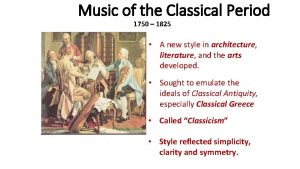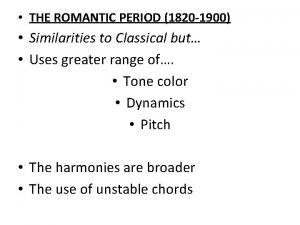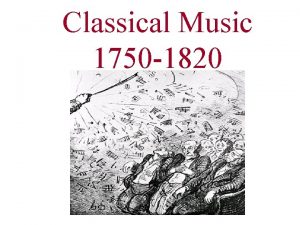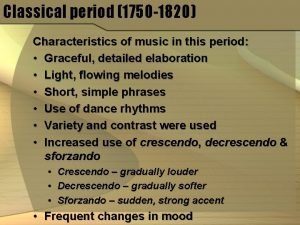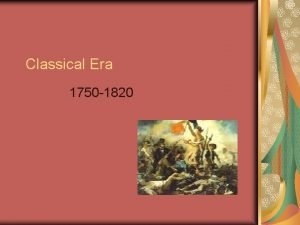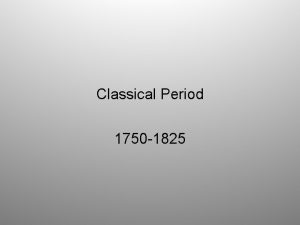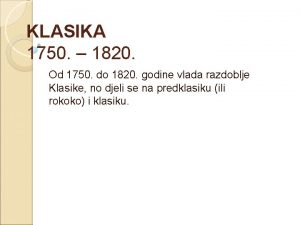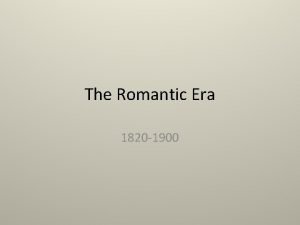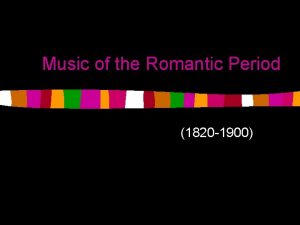Classical 1750 1825 Romantic 1820 1900 Musical Comparisons







- Slides: 7

Classical (1750 -1825) & Romantic (1820 -1900) Musical Comparisons

Classical vs. – MELODY • Simple melodies, often in four- or eight-measure phrases • Mainly stepwise motion – RHYTHM • Consistent rhythms Regular tempos Romantic – MELODY • More complex melodies, phrasing not as regular • Dramatic leaps common • • – RHYTHM Varied and unpredictable rhythm More extremes of tempo

Classical vs. Romantic – HARMONY • Triadic, little chromaticism • Richer, more varied harmonies, more • Major/minor tonality chromaticism • Distinction between major and minor blurs – SOUND • Homogenous orchestral – SOUND color • Wider variety of colors Use of crescendo and • Wider range of dynamics diminuendo • New instruments introduced • Traditional instruments given wider dynamic range

Classical – TEXTURE • Homophonic texture prevails – FORM • Binary and ternary forms, sonata allegro vs. Romantic – TEXTURE • More use of counterpoint – FORM • Same forms, expanded and modified, often reflected programmatic ideas

Ludwig Van Beethoven (1770 -1827) • Was the composer that bridged the Classical and Romantic Time Periods • Born in Bonn, Germany • From age 11, he supported his younger siblings by performing as an organist or harpsichordist. • His career was aided by the growth of concert life & music publishing

Ludwig Van Beethoven • In his early 30’s he began to lose his hearing. • Recent research has shown that his hearing loss • • • & death was probably the result of lead poisoning. Early Beethoven has influences of Haydn & Mozart Later, his writing becomes more dramatic, like Romantic period writing Was probably due to his depression & moodiness because of hearing loss

Ludwig Van Beethoven Famous compositions: • Symphony #5 • Moonlight Sonata Op 27 #2 • Fur Elise • Ode to Joy from Symphony #9 • Sonata Pathetique Op. 13 #8 • String Quartet #14 Op. 131
